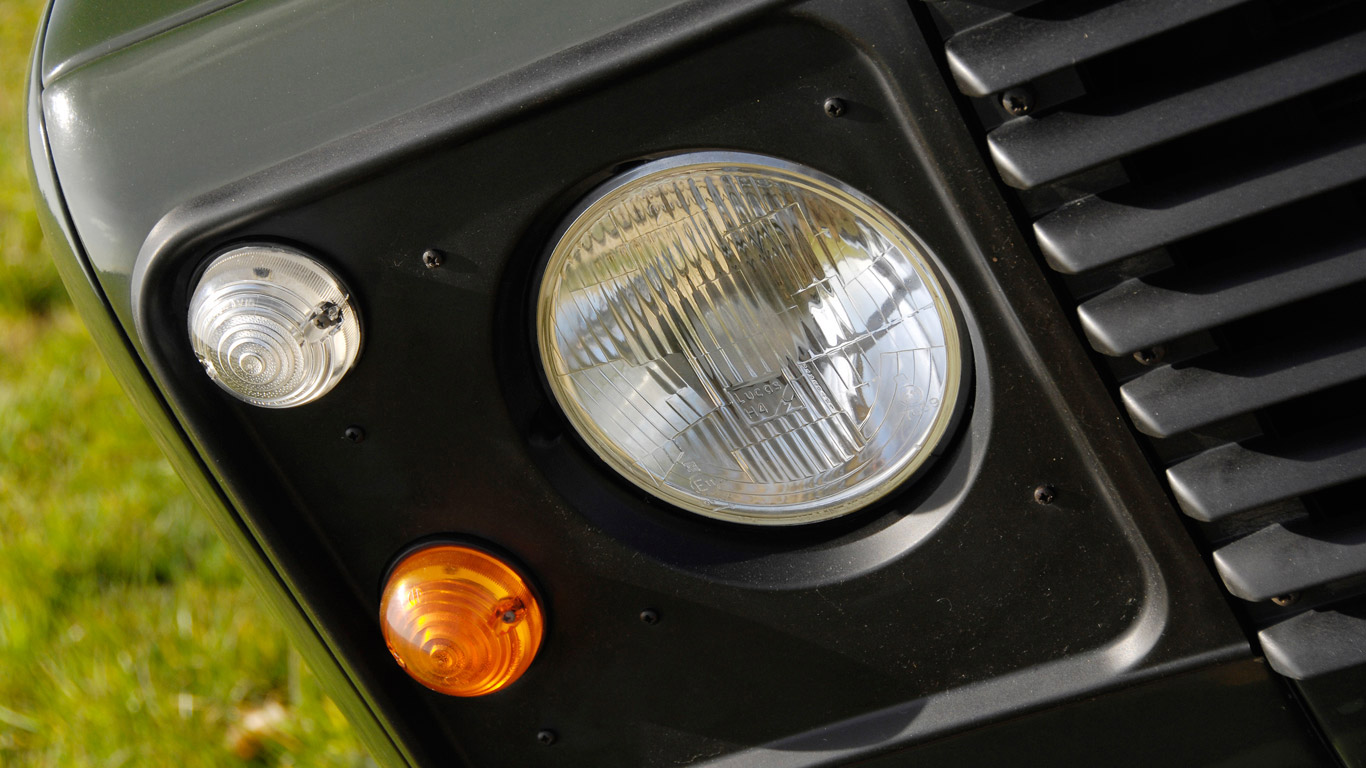This is a rarity for the Retro Road Test: a car that went out of production less than a decade ago: the Land Rover 90 40th Anniversary. After 25 years, the Land Rover Defender production line finally ground to a halt in 2016. And that’s doing it a disservice – the Defender name is 25 years old, but it can trace its roots right back to the 1948 Land Rover Series I.
The Defender on test here isn’t actually a Defender at all – it’s from 1988, so predates the Defender name by three years. It’s limited edition 40th Anniversary – very limited edition, in fact. Industrial action at Rover Group at the time meant only two examples were made before the special edition was binned.

What are its rivals?
It kind of lives in its own sector, the Defender. Sure, there are cheaper, tougher, more comfortable 4x4s that make a lot more sense from a practical perspective.
But none of them is a Defender. If you must look elsewhere, consider the likes of the Mercedes-Benz G-Class or Toyota Land Cruiser. Or a Unimog.
What engine does it use?
Being a Ninety as opposed to a later Defender, E40 KDU is powered by a fairly asthmatic 2.5-litre turbodiesel engine. It was replaced in 1990 by the more popular 200Tdi, which then became the enthusiast’s favourite 300Tdi.
Later models used a range of BMW and Ford diesels – all of which were more efficient and offered greater performance, but lacked the bush-mechanics simplicity of the earlier engines.
What’s it like to drive?
The Defender has a lot of charm. We’d argue that an early 90 such as this is the best compromise between old-school simplicity and modern-day comfort. Its coil springs (as opposed to the leaf springs fitted to Series Land Rovers) offer comfortable (if slightly bouncy) ride quality, while the steering is vague in a way only Defenders can get away with.
Reliability and running costs
“If you want to go into the Outback,” the Aussies say, “take a Land Rover or a Land Cruiser. If you want to come back alive, take a Land Cruiser.”
No, Land Rover Defenders aren’t known for being reliable. And they’re not the most efficient vehicles – expect early-20s MPG. But they’re well catered for in terms of owners’ clubs and online forums – and they’re generally easy to fix if (well, when) they go wrong.
Could I drive it every day?

It takes a special kind of person to drive a Defender every day – but people do manage it. You have to be prepared for water coming in when it rains, and don’t expect a great deal of comfort. Still, enjoy looking down on other motorists, and be prepared to give fellow Defender drivers a cheery wave.
How much should I pay?
Defender prices have always been strong – now more so than ever, with production of the original model now finished. Pay as much as you can afford – concentrate on condition rather than age, and try to get a desirable station wagon over a commercial variant. You’re not going to lose out on a Defender. Not until you start taking running costs into account, anyway.
What should I look out for?

Rust is the big issue. Have a good poke around with a screwdriver, particularly checking the rear crossmember and the bulkhead. They can be replaced, but the work won’t be cheap.
Other than that, look for one that’s been pampered by an enthusiast. Although earlier engines can take more abuse than later ones, look for evidence of regular servicing. Also, check that the four-wheel-drive system works as it should – ensuring the low-range gearbox engages and disengages easily.
Should I buy one?

Objectively, there are many better, more sensible alternatives. But none of them are as cool or iconic as the Defender. Buy now while they’re still relatively attainable, and have a great deal of fun while you watch prices rise even higher.
Pub fact
The 2,000,000th Defender left the Solihull factory towards the end of 2015. It was a unique special edition, built with the help of Land Rover brand ambassadors and celebrities including Bear Grylls and Adam Henson. It sold at auction for an incredible £400,000.
ALSO READ:
Land Rover Defender: driving 70 years of history
How the radical Range Stormer concept helped reinvent Land Rover


